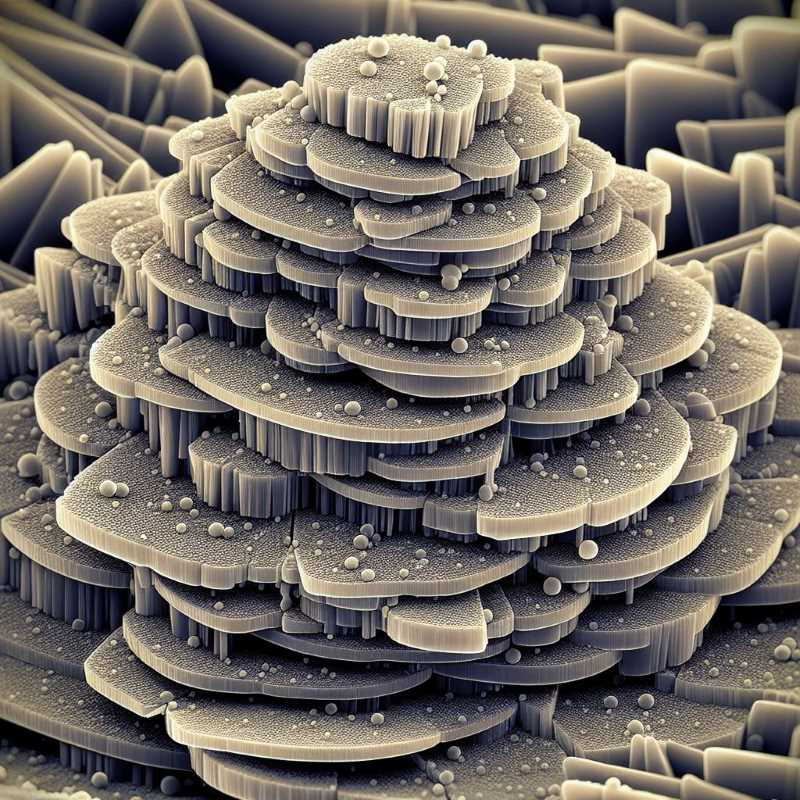The Clay That Could Change How We Take Our Meds
A Mexican research team discovers a novel way to improve drug delivery using synthetic clay called laponite. This innovation offers controlled release, low cost, and could even replace injections.

Dr. María Josefa Bernad Bernad has a problem most scientists would envy: she's got too much innovation on her hands. At the Faculty of Chemistry at the National Autonomous University of Mexico (UNAM), her team is overflowing with ideas centered around a seemingly unremarkable material – the synthetic clay called laponite.
Don't let laponite's humble origins fool you. This unassuming clay is hiding a superhero alter-ego. Dr. Bernad Bernad's research reveals it can transform the way we deliver drugs. It's a discovery that caught the eye of the National Chamber of the Pharmaceutical Industry (CANIFARMA), earning her team a 2023 Award honorable mention for technological research. What makes laponite so special? Let's break it down.
Picture laponite as a legion of microscopic frisbees, each a mere 25 nanometers across. Because these discs are synthetic, they have a pristine, uniform structure. Dr. Bernad Bernad realized they could neatly stack up like a house of cards, with the spaces between acting as cozy little pockets. Perfect for tucking in medicine molecules, perhaps?
“These clays had been used before in pharmaceuticals, but always as a sidekick,” she explains. “We wanted to make them the star of the show.”
The key was that, depending on the specific medicine, laponite could do more than just carry it around. It could become a 'smart' delivery system, gradually releasing the medication over time.
Dr. Bernad Bernad's initial hunch was that laponite would prefer hydrophilic drugs – those that love water. But to their surprise, hydrophobic drugs (the water-shy ones) seemed to get along with the clay just as well. They've had success with a wide range, from everyday painkillers like paracetamol to specialized medicine like dexamethasone.
The real task lies in figuring out the right drug-clay pairings. This is where it gets a bit like a matchmaking service. The perfect match means not just secure transport of the medication, but also that controlled, time-released delivery the team is after.
This breakthrough isn't just about innovation – it's about streamlining. In past research, the team had great results creating complex nano-vehicles for drugs. But laponite is… well, simpler. It's cheaper, readily degradable in the body, and non-toxic.

Beyond the Pill
One of the most exciting paths forward? Using laponite to revolutionize how we take certain medicines. Imagine bypassing a needle with medication that can slip through the thin tissue under your tongue. It's a concept Dr. Bernad Bernad's team is actively exploring. The microscopic size of laponite is key, letting it travel into the bloodstream with ease. This is uncharted territory, and there's a patent in the works.
There might be downsides ahead, of course. It's early days yet. However, animal studies haven't revealed any signs of trouble – reassuring, since laponite contains elements that our bodies are already familiar with.
As though drug delivery wasn't enough, laponite also has a hidden talent for film-making. Dr. Bernad Bernad's team is working to understand how laponite, when combined with certain additives, creates tough, flexible films. These could be a game-changer for drug-carrying skin patches or even eye inserts. A mystery the University of Zaragoza is helping them unravel.
The potential of this research is enormous, a testament to the brilliant and peculiar mind of Dr. Bernad Bernad. With its cost-effectiveness and adaptability, laponite may well be the unassuming hero that transforms the future of medicine.




